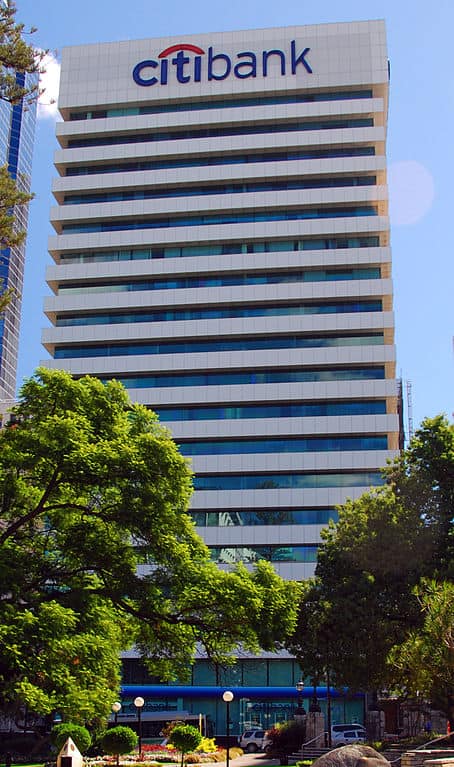Business Standard newspaper conducts a B-school Summer Project Competition every year, sponsored by Crompton Greaves. B-schools from around the country are invited to send what they consider their ‘best summer internship project report’. As readers know, most two-year MBA programmes have a compulsory 6-8 week industry internship. This often carries a full credit or two, so students and faculty take it very seriously.
Business Standard gets around 150 reports [one per school] from B-schools spread all over India. These are reviewed by a knowledge partner and 15 of these are then selected and sent to a jury panel for review.
I have had the good fortune of being on the jury panel for a few years now. The others on the jury include business leaders from digital, consulting, banking, IT and HR. From the 15, six are selected for a final presentation to the jury and other invitees from B-schools.
Over the years, I have been seeing a transformation of the quality of these summer project reports. This year, I thought a COVID-affected cohort would have had a challenging time in finding and doing creditworthy projects. But I was pleasantly surprised. The projects were all done during May/July 2020 by desk-bound students.
One common theme across projects was the use of data and analytics. Be it to study supplier quality in an automobile company or studying employee attrition rates to helping the differently abled, the jury was impressed with the diligence shown by the students. What was a revelation was that many of the projects presented had ready application: One presenter even quantified the financial impact of her project.
No more placement rush
It is more obvious than ever now that summer internships are no longer doled out by corporate India as a favour to B-schools. What does this mean to the entire summer internship process?
More and more companies are beginning to use summer internships as a way of getting new projects executed at a fraction of the earlier cost. More importantly, unlike pre-COVID times, companies are now using the summer internship process to evaluate a candidate’s suitability for permanent employment. And B-schools are now not just measuring placements, but also how many of the students are able to land a PPO, a pre-placement-offer.
Students are lauded for converting a summer internship into a PPO. B-Schools proudly announce, in their internal newsletters, that “our students could convert 70% of summer internships to PPOs”.
Also read: Future of Jobs: Is the MBA regime nearing its end?
This number becomes significant as many companies take double the number of summer interns they used to. So chances of conversion to PPOs is 50% or less. Yet some companies have abandoned the final year placement process completely and are betting entirely on their summer interns to fill openings.
This process of front loading the recruitment system has its advantages and disadvantages. For one, you are able to evaluate a candidate through a deep immersion and not just through a 40-minute interview. The Indian Journal of Industrial Relations (April 2020) in an article on ‘Internship Conversion’ says that already 33% of all B-school placements are happening through the summer internship route.

This route is also said to reduce the ‘intern-shock’ and help young MBA entrants into a company develop realistic expectations from their job. But corporates also need to be aware that if a student, after his or her summer internship, is assured of a final placement offer, he or she may just sleep walk through their second year.
Four-part evaluation process
Companies that do the internship to PPO process have perfected some of the critical aspects of evaluating their interns. For one, the projects are well thought-out and have an internal owner. Second, the intern has an internal supervisor who checks in with them every week or more often. Third, the company wants the intern to also have a Professor as a supervisor, whom the intern can talk to, to clarify doubts. Fourth, each project has to be evaluated at the end and the intern needs to make a presentation of his or her findings.
This is almost like a final interview and companies wanting to follow this path need to put in place systems and processes to ensure that these four steps are rigorously followed.
So what should B-schools do, if summer internship is going to become the critical window for landing a job?
The better B-schools have created two parallel streams of coaching students before internship starts. One, senior students (who are all on campus doing their second year) are roped in to conduct sessions on what to do and not do during an internship. Two, faculty take sessions on the importance of internship and the tools needed to do well. Young alumni are also roped in to conduct mock interviews and training sessions.
This brings us back to the most important player in this game. The student.
Also read: Future of jobs: Have you heard of redistributed retirement?
Students come prepared to face an ordeal by fire when they enter one of the better B-Schools. They know they will face intense competition for the top jobs. When this author was doing his MBA (1977-79), the most favoured companies on campus used to be Hindustan Lever [now HUL], CitiBank, A F Ferguson, Godrej, Nestle, TAS, Madura Coats, ITC, Asian Paints.
It was therefore interesting to review the list in Forbes India (April 2021). The top ten dream companies to work for as rated by B-School students were Google, HUL, Amazon, McKinsey, BCG, Microsoft, ITC, TAS, Goldman Sachs and P&G.
Probably thousands of students will be trying for these top companies. My first word of advice is, don’t get obsessed with a ‘dream company’. It is possible that you may not land an internship with them. Be ready to pivot. Better than having a ‘dream company’ obsession, have a ‘dream industry’ orientation.

Some simple rules
Some B-schools push students to dive into a dream company analysis; this is too narrow. The first year of MBA education should be used to study as wide a range of management subjects as possible, instead of obsessing on search engine optimization or consulting paradigms.
The first decision the student has to make is which internship opportunities you will chase? Pick only those where you will be happy to get a PPO.
Once you land an internship, what should you do? Even before you start you should do sufficient homework about the company so that you go well prepared. One simple step is to talk to seniors who have done internship in the same company the previous year. What did they learn? How did they convert an internship into a PPO?
An HBR Article (July 11, 2016) by John Coleman has some very simple advice on what to do when you start on your internship.
- Treat your internship with the seriousness it deserves, so start with relentless punctuality.
- Always be on time with your assignments and give 100%.
- Finish each assignment or project with excellence in mind.
- Take more work, without being asked: deliver more than you have been asked.
- Be resourceful: go the extra mile, before asking questions, try and look for the answers yourself. Use the time with your supervisor well, invest in learning as much as you can.
- Finally use the internship to build professional relationships in the company.
Pavitra [name changed] got a summer internship with a top pharma company along with one other student from her Mumbai-based B-school. Pavitra was posted to Delhi and her fellow student in Mumbai, the corporate headquarters. Both did a good job. Pavitra probably did a better job but it was the other student who landed the PPO.
When I asked what the reason for this could be, Pavitra had a good observation. She felt that she spent all her eight weeks in Delhi and did not visit the company HQ even once. That was her undoing. Her friend had spent time in building relationships in the company at several levels, which landed him the PPO. Pavitra did not have big regrets but learnt a life lesson as a result of that non-PPO experience.
I know of smart students who work hard on their internships. They also tap resources that will help them score points with their supervisors. Ravi (name changed) was in his dream company but had a tough brand challenge to handle. He did his homework and reached out to people like his Consumer Behaviour professor, who helped him develop new ideas for the brand. He made the PPO cut.
Moving forward, it is likely that as in US B-Schools, 70% of final placement will happen through the PPO route. So students need to see every summer internship as a potential PPO. As PPOs become the norm, it is all the more important that corporates and B-Schools ensure that second year MBA courses do not become just a chore.